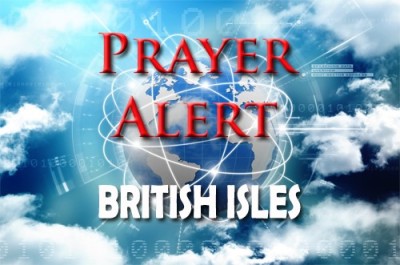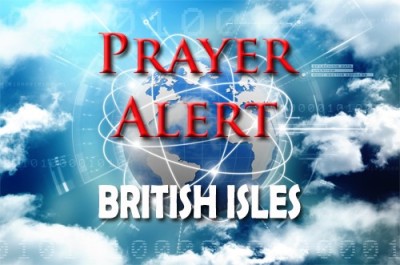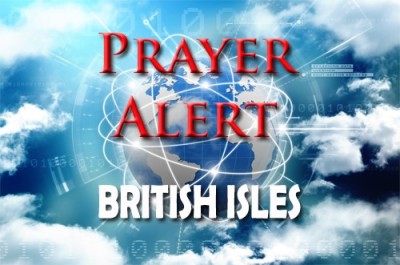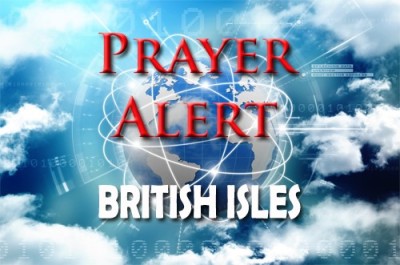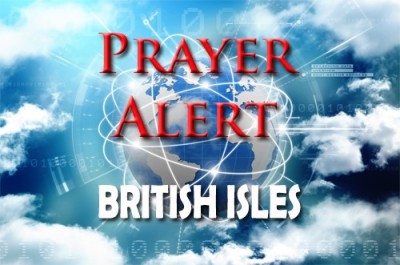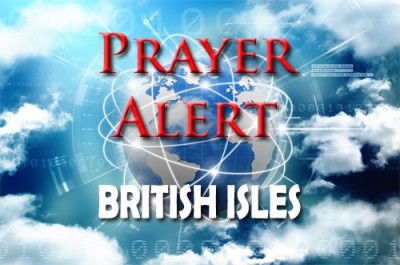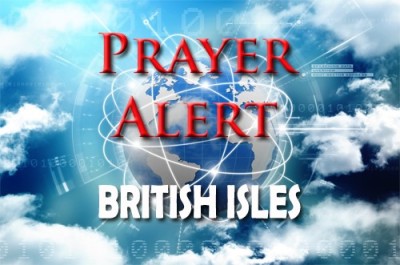70+ chaplains ministering after deadly storms
19 May 2023Violent storms spawned 80 tornadoes across the Mississippi valley in April, resulting in over thirty deaths, levelling dozens of homes and flooding across south Florida. Throughout April and early May more than 70 chaplains from Billy Graham Rapid Response Team and Samaritan’s Purse have prayed with over 2,900 people as dozens professed their newfound faith in Christ.
The former Archbishop of York, John Sentamu, was ordered to step back from active ministry in the Diocese of Newcastle after he criticised a review into the church's handling of abuse allegations against a late priest. The Church has formally apologised to the victim of sexual abuse after the review found that senior figures - including Sentamu - failed to act appropriately when disclosures were made to them. The current Archbishop of York said that the diocese remains committed to the highest standards of safeguarding, placing victims and survivors at the heart of this work. The Church of England's lead bishop for safeguarding said, ‘We all have a bigger moral duty when it comes to safeguarding matters: to really look at it, refer to it, ask questions, hold each other to account, and be curious about how things have concluded. Because of that moral imperative I think that with good training we all would know we need to act differently'.
UK economy is in an uncomfortable place
19 May 2023Independent Christian economist Bridget Rosewell, previously economic advisor to the Greater London Authority, said, ‘I'm expecting the economy to be in an uncomfortable place and we shouldn't lose sight of the long term, in the short term.’ The Bank of England has raised interest rates twelve times in a row and believes inflation will fall slower than predicted as food prices stay stubbornly high. Interest rates take a while to feed through into prices but more stable prices will eventually come through. People with mortgages should expect their interest payments to rise. Pray for people to not overextend themselves or take out loans if they are not sure how they will repay them. Ask God to remove envy and the love of mammon across the UK so that people do not think that they have to have everything that others have.
PM meets Zelenskyy at Chequers
19 May 2023The UK has agreed to send hundreds of long-range missiles and armed drones to Ukraine. This is on top of last week's decision to provide Kyiv with Storm Shadow cruise missiles. These moves mean the UK is going further than any other country in providing weapons with the potential to tip the war in Ukraine's favour. President Zelenskyy met Rishi Sunak at Chequers for two hours of talks as part of his tour of Western allies in preparation for the much-anticipated counter-offensive against Russia. If Ukraine can destroy Russia's command centres, logistics hubs and ammunition depots in occupied territory, it may prove impossible for Moscow to continue resupplying its frontline troops. Mr Zelenskyy said the Ukraine and UK are ‘real partners’.
Buying a dad in £10K visa scam
19 May 2023If an illegal migrant woman gives birth to a child fathered by a British citizen, the baby is automatically British. The mother can then apply for a family visa, remain in the UK, and eventually apply for UK citizenship. Scammers are touting for British men on Facebook and offering them £10,000 to add their names to birth certificates to help pregnant migrants stay in the UK. Facebook says its rules ban this. A BBC investigator posing as an illegal pregnant migrant was told by an agent he had British men who could be fake fathers in a ‘full package’ for £11,000, saying the process is ‘very easy’ and he would get the child a UK passport and ‘concoct a convincing backstory to successfully dupe the authorities’.
Rishi Sunak backs off endorsing marriage
19 May 2023Marriages between men and women were ‘the only possible basis for a safe and successful society’, said Christian MP Danny Kruger at the National Conservatism Conference in Westminster. In his speech, he emphasised the Christian notion of marriage as ‘a public act that wider society should recognise and reward’. But Mr Sunak's spokesman said although some ministers chose to speak at the event, that did not mean the Government endorsed its agenda. The remarks causing concern to Downing Street saw Mr Kruger making a bold defence of a traditional theological understanding of matrimony: ‘The normative family - held together by marriage, by mother and father sticking together for the sake of the children and the sake of their own parents and for the sake of themselves - this is the only possible basis for a safe and successful society.’
Doncaster church foodbank broken into again
19 May 2023Thieves have smashed ‘irreplaceable’ 150-year-old stained glass windows to break into St John the Evangelist Church to steal foodbank products once again. The foodbank has been targeted repeatedly in recent months and organisers have warned that the project could be forced to close, impacting on needy members of the community, if the break-ins continue. Revd Derek Pammett said he was praying for the perpetrators and offered to help them. He said, ‘They are stealing from and harming the community; this must stop or the church authorities will close it all down. If you don't want to involve the police then perhaps someone could ask the culprit nicely to stop. This will harm the needy in our community if it's all shut down.’ Another person said, ‘Someone knows who the perpetrators are. The rumour is that our food is being offered for sale. We give it away free to an ever-growing number of people.’
Liz Truss’s trip a ‘dangerous stunt’
19 May 2023London’s Chinese embassy called Liz Truss’s trip to Taiwan a ‘dangerous political stunt’ which will bring nothing but harm to the UK. In a pre-briefed extract of her speech to the Prospect Foundation, Truss was expected to say, ‘Last summer Rishi Sunak described China as the biggest long-term threat to Britain, and he promised to close all thirty of UK’s Confucius Institutes, which promote Chinese culture on campus in higher education and in some British schools. Sunak was right; we need to see those policies enacted urgently. Confucius Institutes must close, and the service supplied by Hong Kong and Taiwanese nationals in the UK on a free basis.’ The embassy urged Truss to stop supporting ‘Taiwan independence’. Taiwan has been separate from the People’s Republic of China since 1949, but Beijing insists on reuniting Taiwan with the mainland, by force if necessary.

